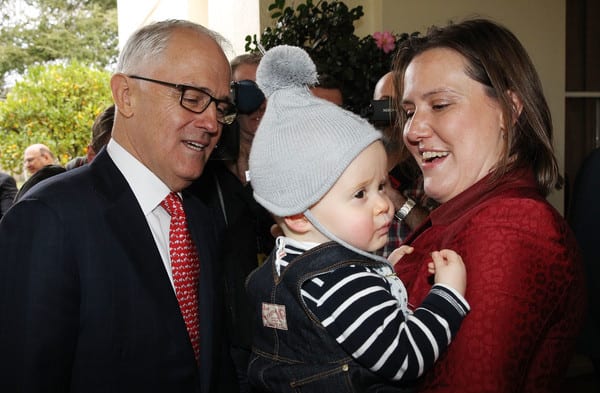When I heard her explain how the trauma of suffering a miscarriage in Canberra last year, alone, away from her home, her partner and her family, made her reconsider her vocation I understood. Who wouldn’t?
Enduring the intensely personal and physical loss of a pregnancy at any place of work would be hard enough. In the male-dominated halls of Parliament the isolation must have been devastating.
Whatever your politics, @KellyODwyer is an incredible woman and role model. Standing up yesterday and doing what was true to her heart was incredibly brave. In our papers today she exclusively reveals the true heartache behind her decision. Read it here: https://t.co/ZHVzbQ23I0 pic.twitter.com/Xs8uYX2z9u
— Lanai Scarr (@lanai_scarr) January 19, 2019
Kelly O’Dwyer’s decision not to recontest the seat of Higgins at the next election is disappointing and a considerable loss to the Coalition but it is perfectly fathomable.
The fact it’s so fathomable is actually indicative of the problem, but I refuse to accept it’s definitive proof that family-minded individuals and politics cannot mix. It’s further proof that, as things stand, mixing a career in politics with a functional and satisfying family life is difficult.
So difficult that it’s critical we stop and consider how things can change lest we accept a world in which our political representatives are only pulled from a portion of the population unencumbered by a willingness or desire to be present in the lives of their families.
Kelly O’Dwyer is not the first person to leave politics for family reasons, not as a euphemism but out of a genuine desire to be around more. Nicola Roxon, Kate Ellis and Tim Hammond are just a few others who reached the same conclusion in recent times.
Hammond’s inclusion in this group is important to note because it counters the argument that it’s only mothers who want to be more involved in their children’s day to day lives.
It is true that to date being a father has not precluded men from successfully pursuing careers in politics. As Caroline Overington pointed out in a tweet on Sunday the day after O’Dwyer cited her plan to resign because of wanting to have a third child, it was announced that Barnaby Joyce is expecting his sixth child which presents no impediment to his career.
https://twitter.com/overingtonc/status/1086851916842201093
It is perhaps too optimistic to say a whole generation of new fathers will adopt the same stance that Hammond did, that he couldn’t be the dad he wanted to be and an MP, but certainly more and more men will.
If we begin excluding these men and all women of child-rearing age from our political system how will our representation look? What hope do we have of having even a modicum of diversity in Canberra if this is the result?
The ‘answer’ to this dilemma isn’t easy but nor is it insurmountable. Other countries around the world have managed to achieve a greater representation of women in their parliaments, in the same way that many companies have boosted the number of women in senior roles. By intentionally seeking to change the status quo.
Ultimately introducing greater workplace flexibility in Parliament and instigating genuine cultural change that begins to recognise the value of diversity are two changes with the potential to change how parliament accommodates parents.
The choices our politicians make cannot be divorced from the context in which they are made and the prevailing context in Canberra is that family commitments remain something that someone else takes care of. This will only take us so far.
As a white, middle-class, well-educated woman O’Dwyer is not, broadly speaking, in a minority but in her own party despite being a minister she was. As a mother of a toddler and a baby, she was.
If she was in a party where she wasn’t the only person at the Cabinet table juggling those commitments the atmosphere would be different. If she was in a workplace where having young children didn’t put her in a minority the atmosphere would be different.
Those things may not have changed her decision to leave politics but until those things change it will be too easy to understand why people like her do. Where that will leave us is a problem that cannot be ignored.


